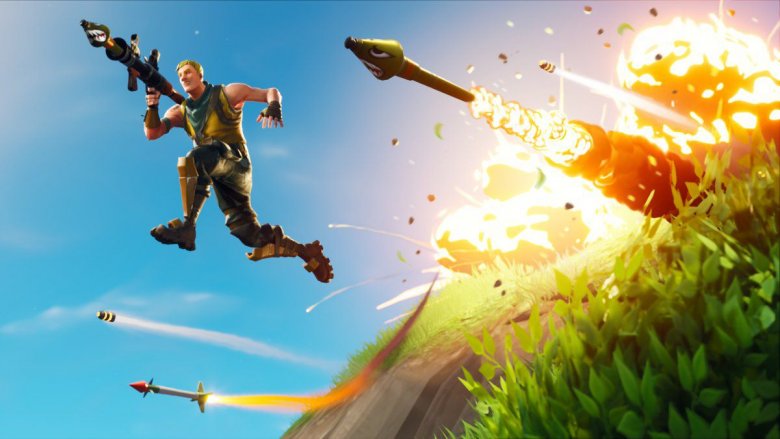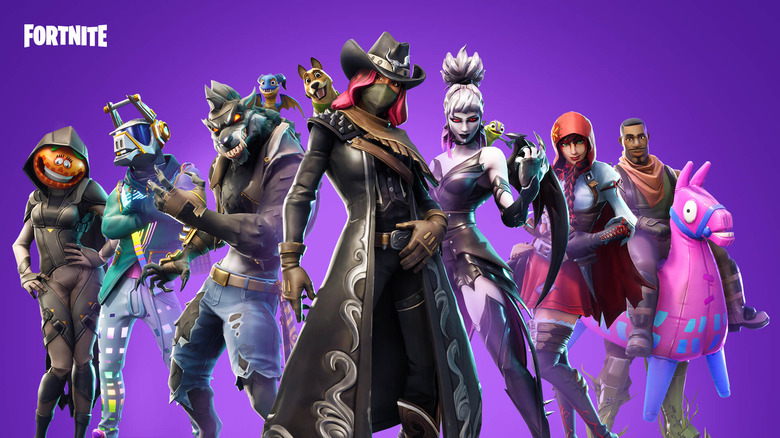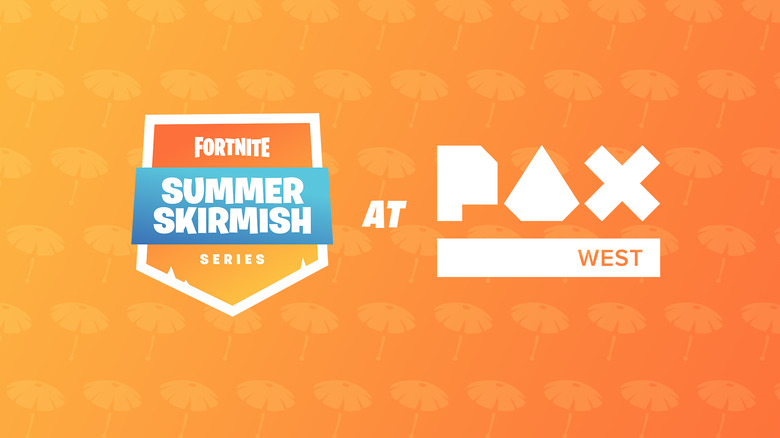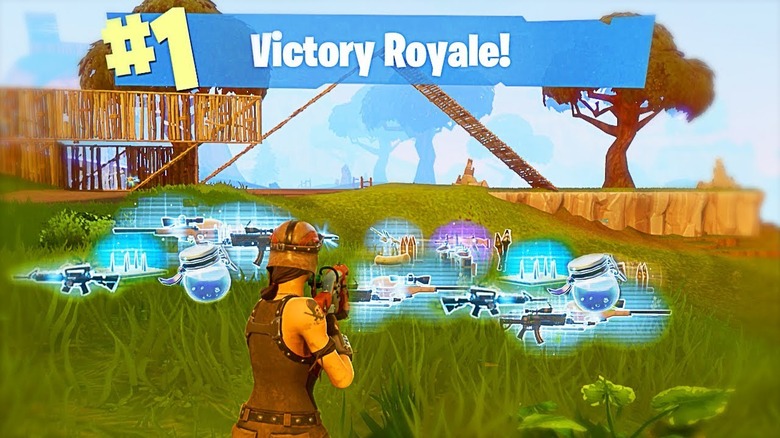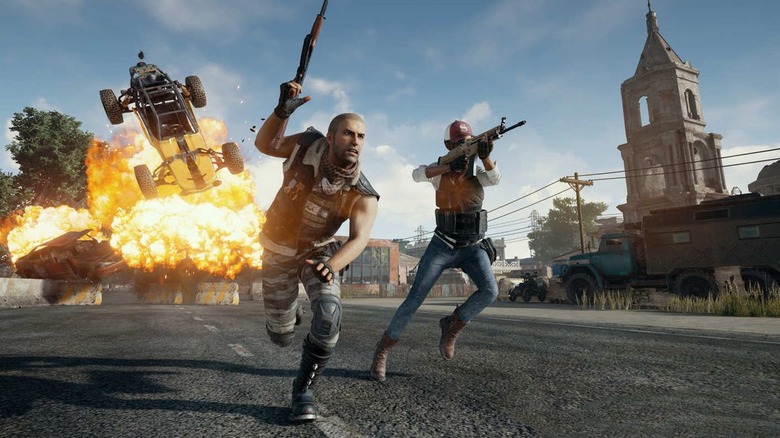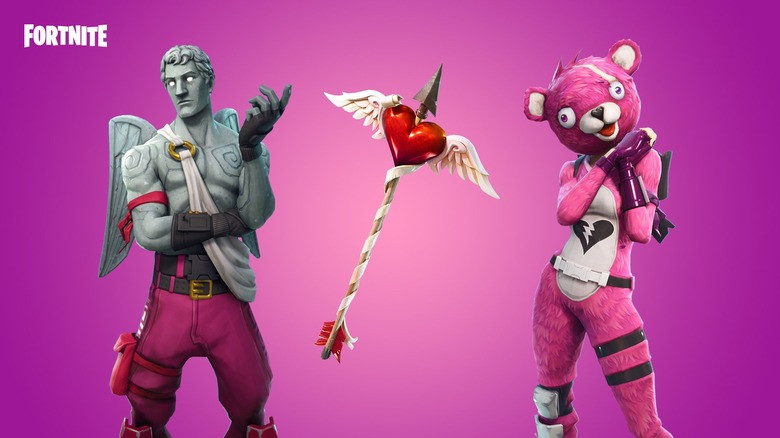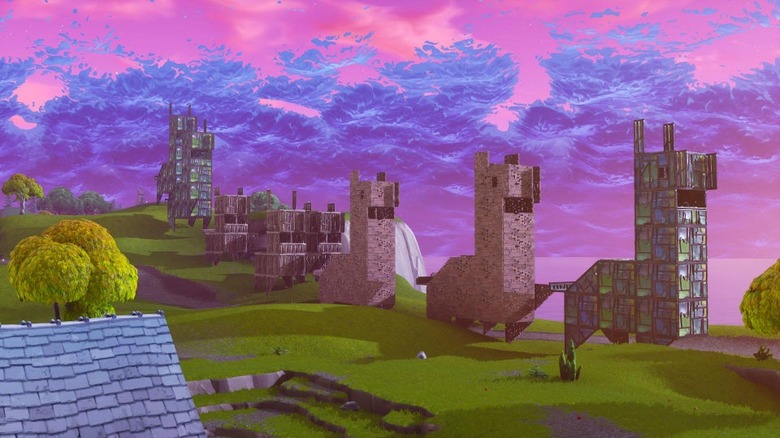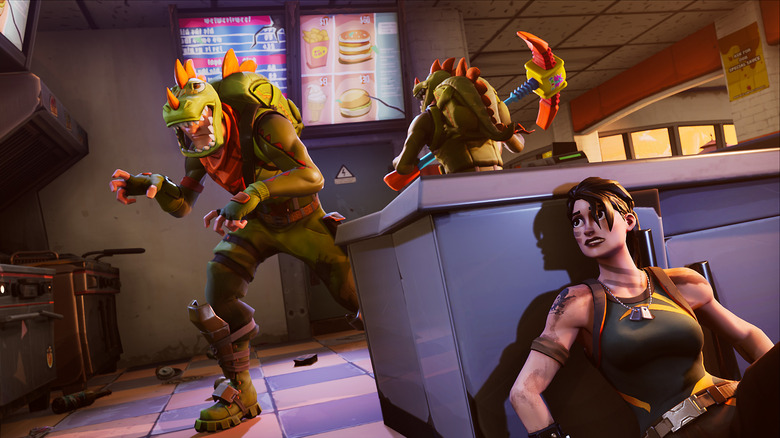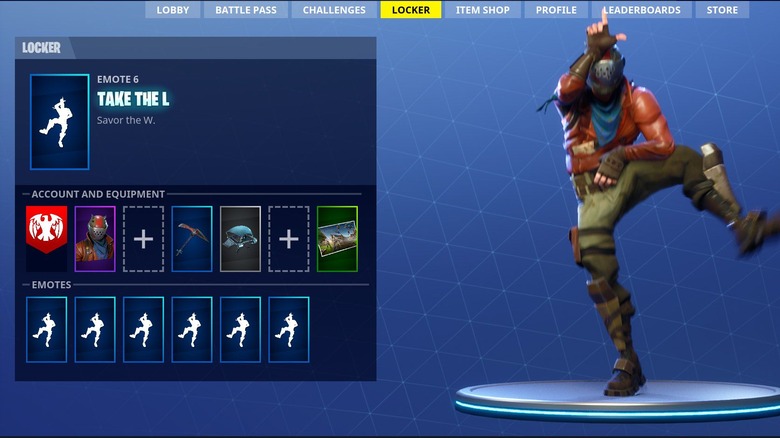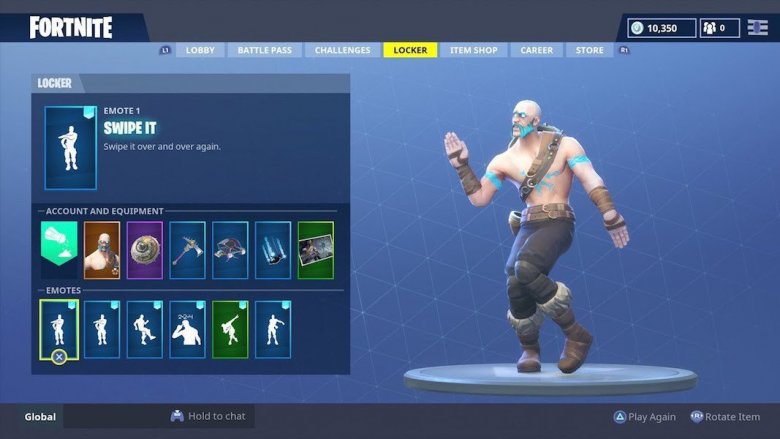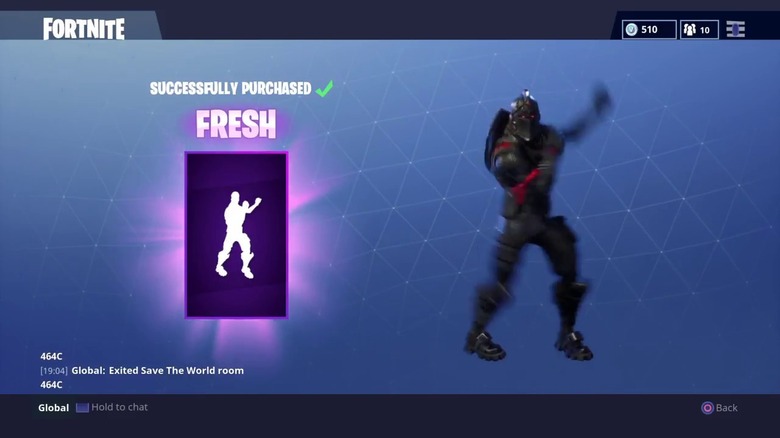Fortnite Scandals You Never Knew About
When it comes to fame, infamy is rarely far behind. Such is the case with the game everyone is talking about and sometimes failing to pronounce correctly. Fortnite has gained global attention for its addictive gameplay and 250 million-strong player base. No one is safe from the Fortnite frenzy: kids, adults, professional athletes, and even Drake have become enamored with the straightforward gameplay and fun designs of the battle royale mode. Although it is bloodless and fairly kid-friendly, the game, and by extension developer Epic Games, have not been able to escape some serious controversies.
When a single title is catapulted to become the face of gaming, all of the problems associated with gaming — hardcore or casual — come along with it. Is Fortnite causing addiction, breaking up marriages, and causing kids to be violent? When there are so many kids involved who are allegedly stealing money out of their parents' wallets to fund their Fortnite addictions, gaming as a whole can get a bad name. For as fun and family-friendly it may seem, the battle royale mode has stirred up some serious ethical and legal battles in real life.
Pedophiles are using Fortnite to talk to kids
Anyone who has ever been on the internet knows that it's not a safe place. Weird, sometimes wonderful, but nevertheless a place a child should not have free rein of. This has become especially apparent in the wake of games with in-game chat. Kids can talk and coordinate with their friends there, but this function can easily be hijacked by people with the worst of intentions.
According to the UK's National Crime Agency, there have been numerous reports of pedophiles using the in-game chat of Fortnite to groom and attempt to lure young victims. This can happen through text or audio chat, one mother reporting that she heard a man ask her 12-year-old son if he knew what sex was.
The game is rated as being appropriate for those 12 and up, but Fortnite has a fairly young player base. Any cursory look into the Fortnite YouTube community shows that there are kids as young as ten playing the game. It's more important than ever for parents to be tech savvy enough to spot disturbing online behavior.
Epic can't host a tournament
The drama around Epic's Fortnite tournament that spiraled out of control was exacerbated by the YouTube drama king himself, Keemstar. Typical, understandable hiccups happened during Fortnite's Summer Skirmish series: lag, confusing scoring, unexciting gameplay, and not the best of camerawork. What was supposed to be the $8 million event of the summer fell flat. All that and the fact that the schedule conflicted with that of the final round of Keemstar's Fortnite Friday series made the scandal all the more scandalous.
Keemstar had allegedly been in contact with Epic Games in order to coordinate around their events. Thus, it felt like a betrayal when their usual schedule shifted to overtake his time slot for the YouTuber and streamer-fueled Fortnite Friday. He had changed times before, anticipating the Summer Skirmish to overlap with his tournament, but this was the last "insult" he was going to take.
Why should it be a big deal if the official tournament steps on the toes of an unofficial one? Because as controversial as Keemstar is, Friday Fortnite was the better tournament. Rather than lackluster gameplay as featured in the Summer Skirmish, Friday Fortnite was all bombastic personalities and in-it-to-win-it gameplay. During the Summer Skirmish, people were hiding, anxious for the chance at prize money. Friday Fortnite was all ambushes and kamikaze fighting, an ultimately more entertaining show to watch.
The winner of the tournament was accused of cheating
The Summer Skirmish series never seemed to recover from its shaky start. The very first day and the very first payout of prize money was contested on Reddit. There it was claimed that winner iDrop_bodies cheated his way to $130,000. iDropz_bodies won, but because of the strange formatting of the games, incomplete information, and the fact that he was a kind of irregularity in top-tier Fortnite leaderboards, his win was questioned.
Best known for playing Destiny, Michael "iDropz_bodies" primarily plays Fortnite on PS4, while most high-level Fortnite players are PC diehards. The allegations against him revolved around the idea that he was using a mouse and keyboard, which would give him an advantage over other PS4 players. This player who no one recognized was suddenly winning hundreds of thousands of dollars for playing Fortnite, and when those who had their suspicions about him went to gather evidence from replays on iDropz_bodies' Twitch channel, it had been suspended.
After a Reddit thread accusing iDropz_bodies of cheating topped out at 40.6k upvotes, Epic released their own statement on the matter. After an investigation, they wagged their collective fingers at the community for trusting unofficial stat sites, clearing iDropz_bodies' name. While he was found innocent, the community threw shade on Epic Games for their confusing scoring system that made them question iDropz_bodies' win in the first place.
Epic sues cheaters, even if they're kids
It comes as no surprise that in a competitive game like Fortnite wherein players of all skill sets are running from the storm, people create cheats. Not tips or tricks, mind you: straight up cheats, which are then advertised on YouTube as BEST FORTNITE HACKS TO GET YOU TO VICTORY ROYALE. No one likes a cheater, and Epic Games is willing to get litigious to prevent and punish cheats used in battle royale mode.
This is the message — loud and clear — that was sent when Epic Games issued lawsuits against those connected with subscription-based cheat servicers to the tune of $150,000 per incident. Epic claims that cheaters had used their intellectual property, a violation of the Digital Millennium Copyright Act.
While Epic's main target is the creators of cheat services, Epic issued additional lawsuits against users of cheats. It's not likely that these cheaters poured over the Fortnite end user licensing agreement that they broke, because they're just kids. Caleb Rodgers, a 14-year-old Fortnite player, admitted to using cheats after being sued by Epic. He places the blame on Epic, however, saying that cheats are freely available. On his YouTube channel, he had hosted guides for using one such cheat, which is what got him in legal hot water with Epic Games.
Rodger's apparently legally savvy mother has fired back at Epic for suing a child.
Fortnite vs PUBG: the real battle royale
Remember that one time when PUBG sued Fortnite? Because PUBG doesn't want you to remember.
There's no debating the similarity between the two games, both in their content and in their success: Fortnite: Battle Royale and PlayerUnknown's Battlegrounds both have the player parachuting into a map where they battle other players until only one remains. The concept itself is far from original. Before PUBG, there were various "Hunger Games modes" created by players in games like Minecraft, and before that was the movie Battle Royale wherein Japanese teenagers brutalized each other, and way before that was the Roman Colosseum.
Focusing a game around this concept proved hugely successful. PUBG set the record for most simultaneous players at 3.3 million, which was only later broken by Fortnite with 3.4 million. This success translates into cash, too. Fortnite is making hundreds of millions of dollars a month. PUBG follows closely behind, the bulk of its sales on the purchase of the game, whereas Fortnite is fueled by their item shop.
PUBG was here first, Fortnite belatedly adding a battle royale mode to its PvE game in the wake of PUBG's success. PUBG Corp filed a suit against Epic in South Korea in an attempt to protect their copyright. Within months, the suit was dropped, neither studio stating whether a settlement had been reached. It's a mystery as to why the suit wasn't pursued, both developers seeming content to sweep this legal skirmish under the rug.
Australia thinks Fortnite is making kids violent
Fortnite's success and subsequent popularity with the kids these days has dragged up the ancient argument that parents love to harangue over: are video games making kids violent?
Since Fortnite has become one of the most recognizable names in gaming, concerned and perhaps out-of-touch parents have taken note of their kids' behavior after playing the battle royale mode. Parents have claimed that Fortnite has caused their kids to become aggressive, obsessed, and addicted, to the point of getting hospitalized for refusing to leave the game.
"They're playing with each other, but killing each other," one guest on the Australian morning show Today said of Fortnite. The focus of these daytime TV discussions have centered around the idea that Fortnite is a "violent" game — guns, pickaxes, and other weapons are deadly tools and not playthings. The battle royale mode does have guns galore, but the purported violence is just as cartoonish as the rest of the game: there's no blood, guts, or gore as some misinformed parents might claim.
There's certainly concern with the addictive nature of the game, but it's been researched time and again that video games and violence are not inherently linked. Kids have been recorded rage quitting and staying up too late on school nights to play the game, but the alleged violence caused by Fortnite in Australia is unlikely to get the game banned any time soon.
Fortnite is also being blamed for divorces
Fortnite is apparently not only turning kids into violent addicts, but the game is also tearing apart marriages. It's again the game's addictive nature of the quick action that's been cited as the source of hundreds of rifts in relationships. Losing a loved one to the hypnotizing grip of a screen has evidently been the final straw in 200 marriages according to Divorce Online.
It's unlikely that Fortnite is the lone reason behind these breakups, but some have taken action to prevent more couples from suffering heartbreak at the hands of the Fortnite frenzy. Several petitions have appeared on change.org aiming to end Fortnite. "Where is the attention we deserve? Where is that text back? You thought they were listening to your story? NOPE! They were focused on Fortnite," reads one petition.
Typically these petitions are much the same: Fortnite is addictive and it causes problems with relationships when too much attention is being paid to the game. Which is totally Epic Games' fault.
That itty bitty accidental swastika
Fortnite is notable for its cartoonish, exaggerated design. This makes for some exciting skins and interesting locations on the map. What's more is that players can get creative and build their own structures. Talented builders have erected 8-bit tributes of favorite characters, herds of llamas, and other pixel art masterpieces.
Of course, players might abuse this feature as they please, but one scandalous build was entirely accidental. A player was attempting to build a dance floor; innocent enough. They were using metal sheets rather than stone or wood, and made a shocking discovery at the point where the sheets met. There was an itty bitty swastika.
As soon as this issue was made public on Reddit by user EuBestCityEu asking for an explanation, an Epic Games developer jumped on, assuring the thread that it was a mistake that would be addressed ASAP. Within a week, an update got rid of the offending symbol on the metal sheets. Fortnite hasn't been able to avoid a lot of controversy, but in this case it was able to divert the internet mob with a quick update to a small quirk.
The Sony cross-play scandal isn't about the better Fortnite experience
There's a ton of different ways to play Fortnite: PC, console, mobile, and now players can go head to head on the Nintendo Switch. The internet has — and will probably always — debate about the superior way to play the game. Sony claimed to have the answer: the PlayStation 4 was the ideal way to play the game.
"Fortnite, I believe, partnered with PlayStation 4 is the best experience for users," said Sony CEO Kenichiro Yoshida at the IFA technology show in Berlin. This statement came after the maelstrom of controversy around Sony blocking cross-play with other platforms. Players who swap between the PS4 and the Nintendo Switch will find that their progression and items will not transfer between the two platforms. Sony, perhaps condescendingly, made this decision on behalf of the players.
Others said that the truth behind the controversy is a lot less player-focused. It comes down to money. Tweeting at gamer extraordinaire Greg Miller, former head of Sony Online Entertainment John Smedley said, "When I was at Sony, the stated reason internally for this was money. They didn't like someone buying something on an Xbox and it being used on a PlayStation. Simple as that. Dumb reason, but there it is."
Fortunately, the raw power of Fortnite had melted even Sony's cold heart. The Japanese giant is currently in an open beta that specifically allows Fortnite — and only Fortnite — to be cross-played on the PS4 to any other platform. Hopefully Sony opens this up to all other games as well.
Athletes are getting addicted to Fortnite
It's not just parents, spouses, and Australia that are concerned with Fortnite allegedly drawing people in and never letting them go. There has evidently been an increase in player injury as a result of the game. Not just your usual players hanging out in their bedrooms: professional athletes are playing Fortnite with the same fervor as the average teenager. And this has coaches worried.
Professional athletes have a lot of downtime between games. It's become popular to fill that time hanging out in hotel rooms and recovering with rounds of Fortnite. Could this encourage coordination and communication between players? A training session in hand-eye coordination? Coaches are instead seeing the practice as a drain on athletes' focus, and a dangerous distraction from the hours that are meant for sleeping.
While Fortnite itself hasn't been proven to be the problem, after the controversial decision by the World Health Organization to recognize gaming disorder — impaired control over gaming habits, a perceived "addiction" to gaming — scouts, coaches, and the NHL alike have been wary of prospective players with an addiction to Fortnite.
Defying gravity
They say the devil is in the details, but Epic Games had hell to pay after the addition of an embarrassing and apparently "unintended" detail to the animations of Season 6. Players took notice that some emotes had some extra bounce to them if female character models were involved. Yes, Epic added boob jiggle physics to their otherwise PG game.
What's certain is that their response and quick patch of the problem is strange. In a statement to IGN, Epic essentially apologized saying that the addition of some bonus physics was careless and accidental. The time and effort creating the jiggle surely didn't happen accidentally. It's a subtle addition, but breast physics don't animate themselves. It is more likely that the developer didn't expect the whole of the world to take notice.
While the jiggle at hand is definitely tame considering the kind of gravity defying antics other games' female character models get up to, the internet was in a general uproar about the jiggly Jubilation emote. Fortnite is populated by women, adults, and kids alike so this move maybe didn't have all of Fortnite's player base in mind.
Stolen moves lead to lawsuits
After earning a Victory Royale, players are able to celebrate with a number of emotes, some modeled off of dances like the ever-popular floss or the classic robot. Fortnite stays hip with the kids, quick to jump on the newest dance sensations. But these moves aren't original to Epic Games, just in the same way that the battle royale style isn't. Music artists have taken issue with Epic taking their dances and turning them into emotes without any notice to the original copyright holder. Yes, choreography can be copyrighted. Outrage over Epic profiting from other artists work without so much as a shoutout has at last come to a head: rapper 2 Milly is suing Epic Games for stealing and profiting off of his dance Milly Rock, which Epic renamed Swipe It.
In July, Chance the Rapper tweeted that Epic was doing wrong by black creatives by monetizing their work without credit. The creators of the dances should have their music featured alongside the emote: surely Epic Games of all companies could afford to purchase the rights, but they have made no move to do so. The internet and 2 Milly's representative in the suit, David Hecht, attribute this to the historical trend of white people profiting off of black culture without ever giving attribution to the original creators. "I think they believe that they can railroad African-American talent because they doubt that there will be any legal consequence," Hecht said in an interview with Kotaku.
Something's rotten: Fresh Prince star sues Fortnite
Remember how we mentioned that choreography can be copyrighted? As it stands now, copyright lasts for the original creators life, plus seventy years, and although the Fresh Prince of Bel-Air seems like a blast from the past now, it really wasn't all that long ago that Carlton was breaking out his signature move. Despite this, both Fortnite and NBA 2K16 lifted his dance from everyone's favorite '90s show and made emotes of the arm-swinging, jazzy Carlton dance.
Fortnite has dubbed the emote "Fresh" as a call back to the original show that Alfonso Ribeiro first cut a rug in. He has since summoned up Fresh Prince nostalgia by breaking into the Carlton during his stint on Dancing With the Stars and other guest appearances. The dance belongs to him, the two are practically synonymous. Thus, Ribeiro is suing Epic Games, also represented by David Hecht, who told TMZ, "Epic has earned record profits off of downloadable content in the game, including emotes like 'Fresh.' Yet Epic has failed to compensate or even ask permission from Mr. Ribeiro for the use of his likeness and iconic intellectual property."
Everyone knows where Fortnite appropriated the Fresh emote that lines up suspiciously well with Tom Jones' "It's Not Unusual." Ribeiro is now working toward reclaiming his intellectual property from the most popular video game in the world.

